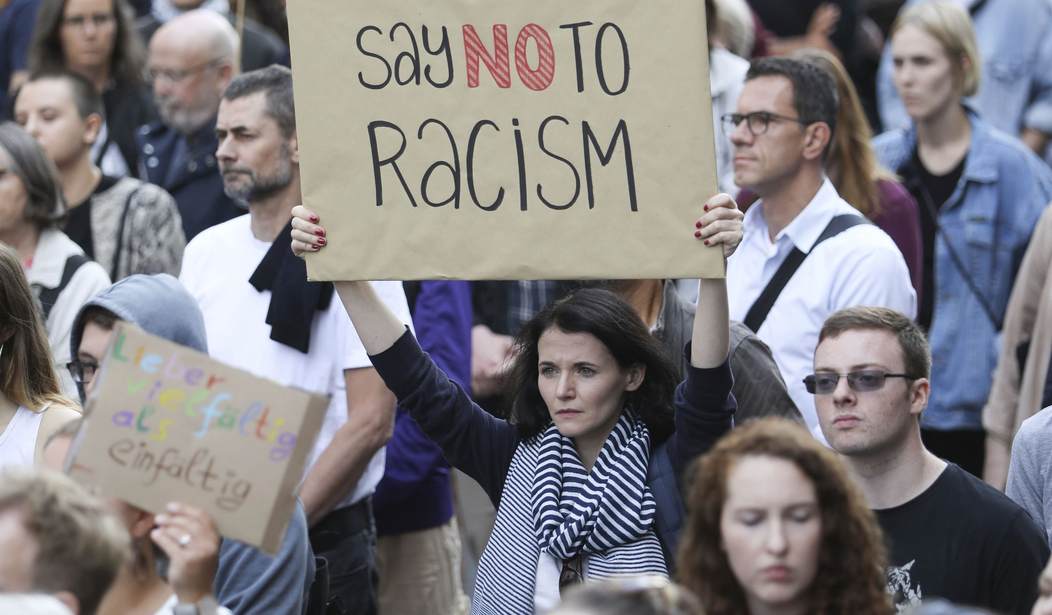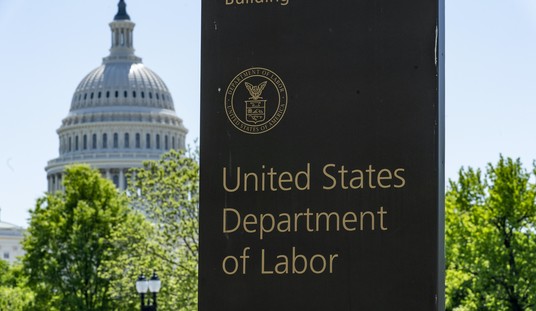Are you turned off by the racism of strict and heavily-enforced rules?
An assistant professor in North Carolina appears to be.
As reported by Campus Reform, Albert Stabler recently penned an article for The Journal of Social Theory in Art Education.
In the piece, Albert recalls his decade in Chicago teaching at a high school serving “a low-income Black and Latinx neighborhood.”
A takeaway: There was (and is) a whole lotta racism goin’ ’round.
Firstly, he labels the school’s surrounding area as both over- and under-policed.
It seems they needed white people to stay, but those folks bailed. At the same time, the whites were kind of KKK-ish:
The school is in an area that was abandoned decades ago by both industrial capital and White residents, and the neighborhood additionally suffers from longerterm structural and intergenerational effects of White supremacist violence…
Albert subscribes to the school-to-prison pipeline theory, and he laments there “were many students who regularly received in-school and out-of-school suspensions for what were perceived as disruptive actions.”
But were they really?
He observed “official punishment, within and beyond schools,” which he considers “institutional racism.”
“[H]arsh disciplinary policies and an on-site police presence,” he regrets, “contribute[d] to the wider mass incarceration phenomenon disproportionately affecting young people of color.”
And “White emotions” were definitely a problem. One emotional white lady even went to the authorities:
White people’s feelings and intentions often have outsized consequences on People of Color … The White art teacher I replaced at my high school was said to have wept at the end of every school day. Near the end of her tenure, this teacher pressed assault charges against a Black student who cut off a lock of the teacher’s hair.
The way he sees it, all the regulation was too much.
Many Black and Latinx schools in low-income areas have metal detectors at every entrance, police officers on duty in the school, and security guards stationed throughout the building. … These schools evoke early penitentiaries…
“[S]tate punishment,” he bemoans, “has become central to life in lower-income communities of color. The 1990s experienced the introduction of zero tolerance school discipline policies and school-based police officers, as well as the expansion and intensification of the U.S. criminal punishment system.”
And why all the disciplinary action?
He believes he’s figured it out:
White people express the paternalistic view that people of color are like children who cannot appreciate what they are given, nor be trusted to look after themselves.
If that wasn’t enough…
[B]lack and Latinx people face the additional burden that White people are largely unable to recognize their own oppressive roles.
Albert profiles a particular situation that happened to a fellow art teacher: The evidently white male teacher “was punched by a student, whose race was not mentioned.”
Later, that teacher asked a Facebook group — likely consisting “almost entirely of White art teachers, a large majority of whom seemed to be women” — if he should file charges.
Horrifyingly, most said Yes.
A few stated reasons:
- “The real world is a tough place.”
- “Violence is only getting worse, not better, if we continue to muffle and conceal.”
- “It won’t go him any favors if he sees he can act this way and get away with it.”
Albert schooled ’em — cops can’t take care of people’s “interpersonal conflicts”:
I noted the racialized character of this emphasis on legal punishment, in which a student, whom the original poster stated had recently turned 16, was being treated by many commenters as if he were an adult, both destined to and deserving of a lifetime of incarceration. And I forthrightly stated my view that the police do not and cannot solve interpersonal conflicts.
He didn’t appreciate the group not taking into account “forms of sustained and intergenerational violence.”
He also considered the “ironic” fact that “art class (conventionally) offers a space in school that is forgiving and free of judgment.”
Down with Karens:
A pattern continues to this day wherein White citizens and police officers react with disproportionate violence to perceived threats to the racialized social order. Frivolous calls by Whites to police in regard to Black people’s everyday behavior has become a regular occurrence.
“The assumption of authority among White Americans,” he bewails, “puts pressure on the justice system to sustain a feeling of safety and comfort for White people, at the material and physical expense of poor and BIPOC families.”
The whole Facebook group situation, he insists, was a “textbook example of the overvaluation of White feelings.”
So how do we loosen up and stop the racism of rigid rules and pernicious punishment?
He has a few ideas:
- “[Incorporate] ideas and knowledge of teaching learned from BIPOC (Black, Indigenous, People Of Color) communities.”
- “[Embrace] antiracism.”
- “[Draw] on approaches rooted in police and prison abolitionism.”
So if we employ “antiracism” — which, per CNN, banishes microaggressions such as “I don’t care if you’re white, black, yellow, green or purple” — and if we abolish the police and do away with prisons…will utopia finally reign for all?
I may be wrong, but perhaps more conversation’s required.
Hopefully, students can drum it up — in one of his classes at Appalachian State University.
Albert Stabler is a self-described “nearsighted cis white man from Ohio” who teaches “gender, women’s and sexuality studies.”
“Here in [Boone, North Carolina]” his ASU bio reads, “I am trying to find ways to delicately introduce my preoccupation with state racism into my work teaching art education.”
Among his listed experiences:
“I…coordinated a prison-based peer-led trauma informed community counseling group, and worked with a group that fought local jail-building…”
Good for him — abolitionist is as abolitionist does.
-ALEX
See more pieces from me:
Rescue Workers Find Screaming Woman Stuck Between Buildings, Naked — and You Can Guess Where
Find all my RedState work here.
Thank you for reading! Please sound off in the Comments section below.













Join the conversation as a VIP Member